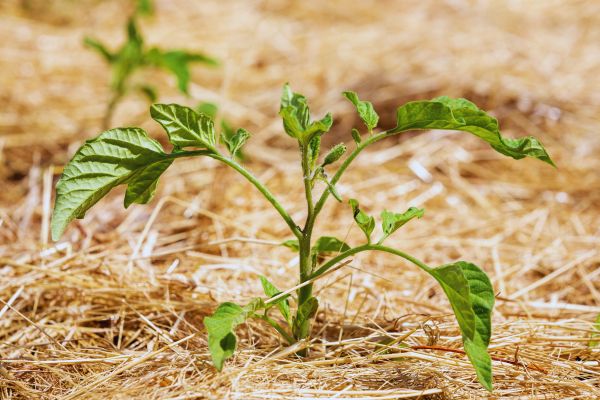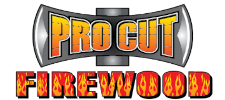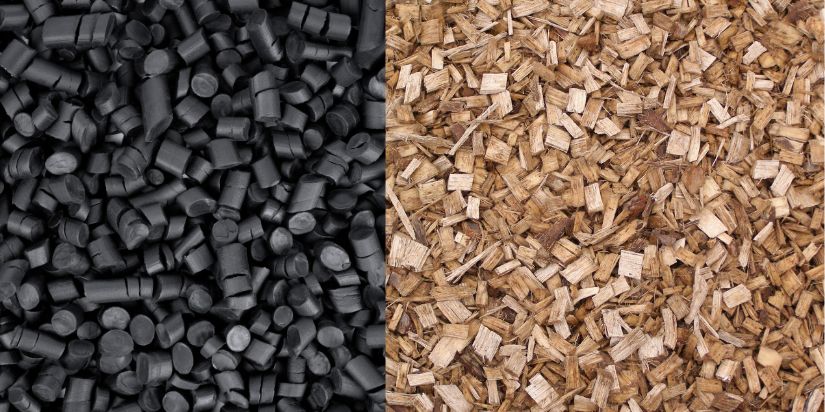The time has finally come to get back outside and beautify your yard beneath those warm rays of sunshine. At the start of the warm season, you have a long list of to-dos to get your outdoor space back in shape. You need to mow, weed and edge. Of course, you need to lay fresh mulch down in your garden beds (and maybe your vegetable beds or along sidewalks, too)! But you’ve started to wonder: “Should I choose artificial or natural mulch for my yard?”
Today, we’ll help answer that question for you. We’ll also provide extensive overviews of what artificial and natural mulch really are before providing a final answer. Before you dive into this information, feel free to learn more about the premium natural mulch available from ProCut Firewood by clicking the button below.
What is Artificial Mulch?
Artificial mulch is any ground covering made from synthetic materials. Often, these are created from recycled materials, like using old tires to create rubber mulch. Other times, they’re purposefully created from new materials. If using recycled items for artificial mulch appeals to you, it’s crucial you read the labeling or speak with your distributor about their product’s sourcing.
What Types of Artificial Mulch Are There?
The most common type of artificial mulch is rubber mulch. But you can also find artificial variations made from landscaping glass and plastic.
Rubber Mulch
You’ll often find rubber mulch on playgrounds because it tends to be less hazardous than sharply pointed wood, glass or plastic options. Overall, we agree that rubber is suitable for this purpose, so it may be a worthwhile investment for your outdoor play space. However, it’s important to thoroughly check your rubber mulch when laying it down. Rarely small metal pieces from steel-belted tires can be found in the mulch.
On the other hand, rubber mulch is not a good option for vegetable or flower beds. There are two primary reasons for this. First, the tires used for rubber mulch are known to leach certain chemicals into the soil, which aren’t good for your plants. Second, rubber does nothing for your plant’s nutritional needs and might be too dense to allow the roots to breathe.
Landscaping Glass Mulch
Some people choose landscaping glass mulch for a bright, modern aesthetic. The glass pieces reflect light from the sun and can even reflect different colors onto nearby sidewalks. However, there are a few distinct downsides to this type of mulch.
The most obvious is that the glass is sharp. If you have pets or children who play in your yard, you may want to skip landscaping glass mulch to avoid anyone getting hurt. It’s also challenging to keep glass clean, and every spot of dirt or flower petals in your bed will be highlighted. Plus, landscaping glass mulch is relatively expensive compared to other mulch types.
Plastic Mulch
Plastic is an incredibly affordable mulch choice; some people use sheeting instead of shredded options. However, the very low price tag and recycled materials often used are the only real upsides to this mulch – and, unfortunately, there are quite a few downsides.
The most significant of these downsides include:
- Plastic can be sharp and dangerous (especially for children and animals)
- Chemicals and pesticides can be leaked into your environment
- Less water gets to the soil, which can cause your plants to become dehydrated
- It’s easy for plastic bits to wash away in high rains because they don’t “become” part of the soil like organic variations
How Long Does Artificial Mulch Last?
In theory, artificial mulch could last a lifetime. After all, rubber tires can take 2,000 years to decompose fully. Glass can take up to 4,000 years to decompose, while plastics take anywhere from 20 to 500 years.
In practice, these mulch types don’t last that long—and there’s one big reason why.
Artificial mulches don’t “become” part of the soil like their natural mulch counterparts. While strong winds and heavy rains can wash away any mulch type, it’s much more likely to happen with artificial variations.
It’s hard to give a definitive answer to this question. If you live in a dry area that doesn’t receive many storms, artificial mulch could theoretically last you a lifetime. If you live somewhere that sees a lot of rain or storms, you’ll be lucky if it lasts through the first powerful weather event.
How Much Does Artificial Mulch Cost?
The cost of artificial mulch varies. Landscaping glass mulch is the most expensive option, with plastic being the cheapest. Rubber mulch falls somewhere between those two in terms of costs.
What Are the Benefits of Artificial Mulch?
Artificial mulch does provide some benefits. Foremost among these are:
- They don’t attract bugs like natural mulch variations do
- If you live in the right climate, they can last a long time
- Many are recycled, meaning it clears space in landfills
- They tend to be very weed resistant
- They provide a unique aesthetic some homeowners may prefer
What is Natural Mulch?
Natural mulch (sometimes referred to as “organic”) originates from living materials. In other words, it takes something existing in nature and puts it back to use. Although natural mulch isn’t technically made from recycled materials, it’s often used from “excess.” For example, ProCut Firewood creates our natural mulch from pieces left over from splitting our kiln-dried firewood.
What Types of Natural Mulch Are There?
There are many types of natural mulch, the most common being wood mulch. Other types include pine straw, grass clippings, newspaper, cardboard and leaves.

Wood
Wood mulch comes in several varieties, each with its own distinct set of benefits and disadvantages. However, we highly recommend premium organic hardwood mulch because it provides your outdoor space with numerous benefits. Plus, it’s available in multiple colors like brown, red and black, so there’s an option for everyone.
Some people like cedar mulch (a softwood variation) for its pleasant aroma. However, we don’t recommend it due to potential allergies and animal hazards.
Pine Straw
Pine straw is a popular choice for vegetable gardens because it’s easy to remove during planting or harvesting, if necessary. Plus, it works well to create dry footpaths between your rows.
The primary downside to pine straw is that it’s not aesthetically pleasing, so you should avoid it in your garden beds. Another thing to remember is that straw is very thin and light. This means you’ll want to layer the straw thick to reap benefits like weed prevention and moisture retention.

Grass Clippings
Grass clippings are a convenient option since you’re already mowing your lawn. However, they break down quickly, so they’d have to be replaced regularly – as much as once per week. Plus, piles of grass clippings aren’t very attractive in your front flower beds and can honestly be a downright eyesore. However, you could use grass clippings in your vegetable garden, where aesthetics isn’t as important. Remember you’d have to be dedicated to regularly reapplying them throughout the growing season.
Newspaper
Newspapers are created from nothing more than dye and paper, which is a wood product. Many people enjoy newspapers because they’re 100% biodegradable and attract helpful bugs (like worms) to your garden. The downside is that newspapers are very light and can easily be swept away in a storm.
Cardboard
Like newspapers, cardboard is 100% biodegradable and can attract helpful insects. However, it lasts longer than a newspaper because it’s denser and holds up a little better in winds. We recommend wetting your cardboard after laying it down to further prevent it from being swept away if that’s your chosen route. Both newspaper and cardboard can be used beneath other mulch types, like wood.
Leaves
Using leaves as mulch can be an excellent way to eliminate all the ones you rake in the spring. But, like other natural mulch options, they don’t look great. A great way to use leaves without disrupting your lawn’s beauty is by turning them into the soil rather than laying them on top. This way, you get the added decomposition benefits, but you can add something more visually appealing on top, like black wood mulch.
How Long Does Natural Mulch Last?
Each natural mulch type will last a different amount of time. On the short end, you have grass clippings, which can fully decompose in as little as one to two weeks in the right circumstances. On the longer end, natural hardwood mulch can last years—although we do recommend an annual reapplication. All other natural mulch types will fall somewhere in the middle.
How Much Does Natural Mulch Cost?
The cost of natural mulch varies significantly but is usually more affordable than artificial options. Some natural mulch options are things you may already have around your home and can reuse. However, the safest, most beneficial option is hardwood mulch, which is slightly more expensive.
What Are the Benefits of Natural Mulch?
There are numerous benefits to natural mulch, but a few of the most significant include:
- Weed prevention
- Soil moisture retention
- Soil temperature regulation
- Adds necessary nutrients to the soil as it decomposes
- Prevents soil erosion
- Decreases the risks of soil-borne illnesses
- Protects your plant’s roots during winter
- Increases plant rooting depth
- Aesthetically pleasing
- Some are created from “extra” items from other processes (like cutting firewood)
Artificial vs. Natural Mulch: The Conclusion
So, should you choose artificial or natural mulch for your yard? We recommend natural mulch for almost all situations. Premium hardwood mulch, in particular, is a perfect blend of long-lasting, low-maintenance and beneficial! However, there are a few exceptions to this rule.
Here’s a breakdown by usage:
- Rubber mulch is an excellent choice for playgrounds
- Straw, grass clippings and leaves are great for vegetable gardens
- Hardwood mulch is best for fruit trees, including apple, peach, pear and plum
- Wood mulch is best for creating natural pathways through your yard
- Flower gardens do best with wood mulch
- Straw, grass clippings and leaves can be turned into the soil of flower gardens for extra growing oomph
- Newspapers and cardboard can be laid beneath hardwood mulch in flower gardens if desired
We can break this down further by category to provide further enlightenment:
- The longest-lasting option: Glass, Rubber and Plastic (in theory)
- The cheapest option: Grass clippings and leaves
- The most beneficial option for your yard: Wood mulch
- The safest option: Natural mulch
Looking for High-Quality Natural Mulch Near Rochester, MN?
Now you thoroughly understand what artificial and natural mulch are – and you know that natural mulch is almost always the superior option! If this blog has you ready to find high-quality natural hardwood mulch for your yard, ProCut Firewood is here to help! Contact us today to place your natural mulch order and let your yard begin reaping the benefits. We look forward to hearing from you.







